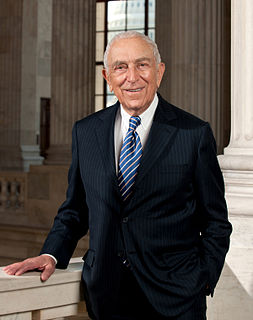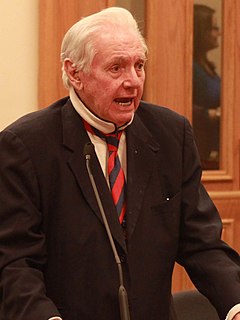A Quote by Edward Kennedy
Judges are appointed by and with the advice and consent of the Senate. And it is our duty to ask questions on great issues that matter to the American people and to speak for them.
Related Quotes
An American leader would be derelict of duty if he did not seek to understand all his options in such unprecedented circumstances. Presidents Lincoln during the Civil War and Roosevelt in the lead-up to World War II sought legal advice about the outer bounds of their power - even if they did not always use it. Our leaders should ask legal questions first, before setting policy or making decisions in a fog of uncertainty.


































